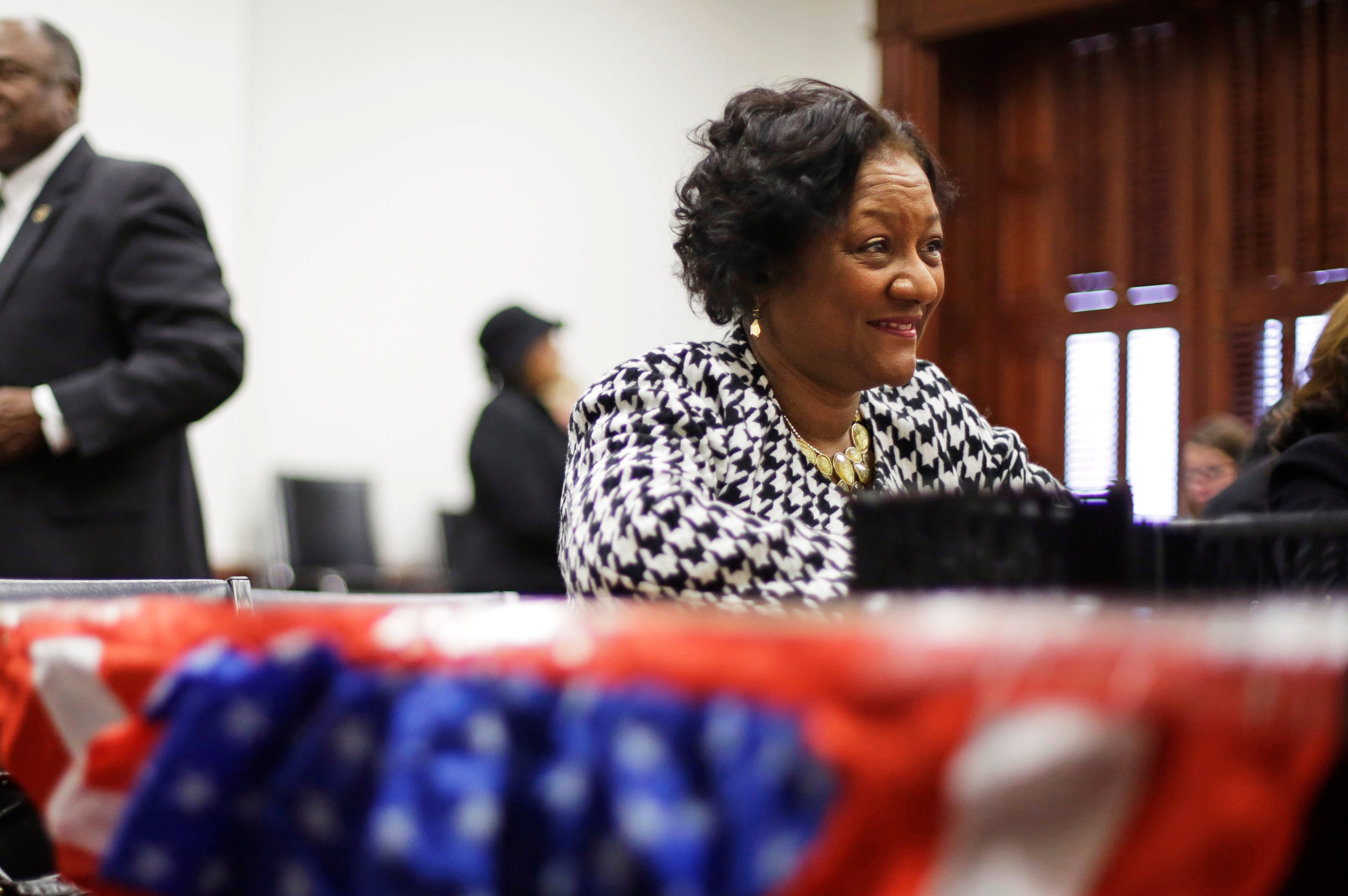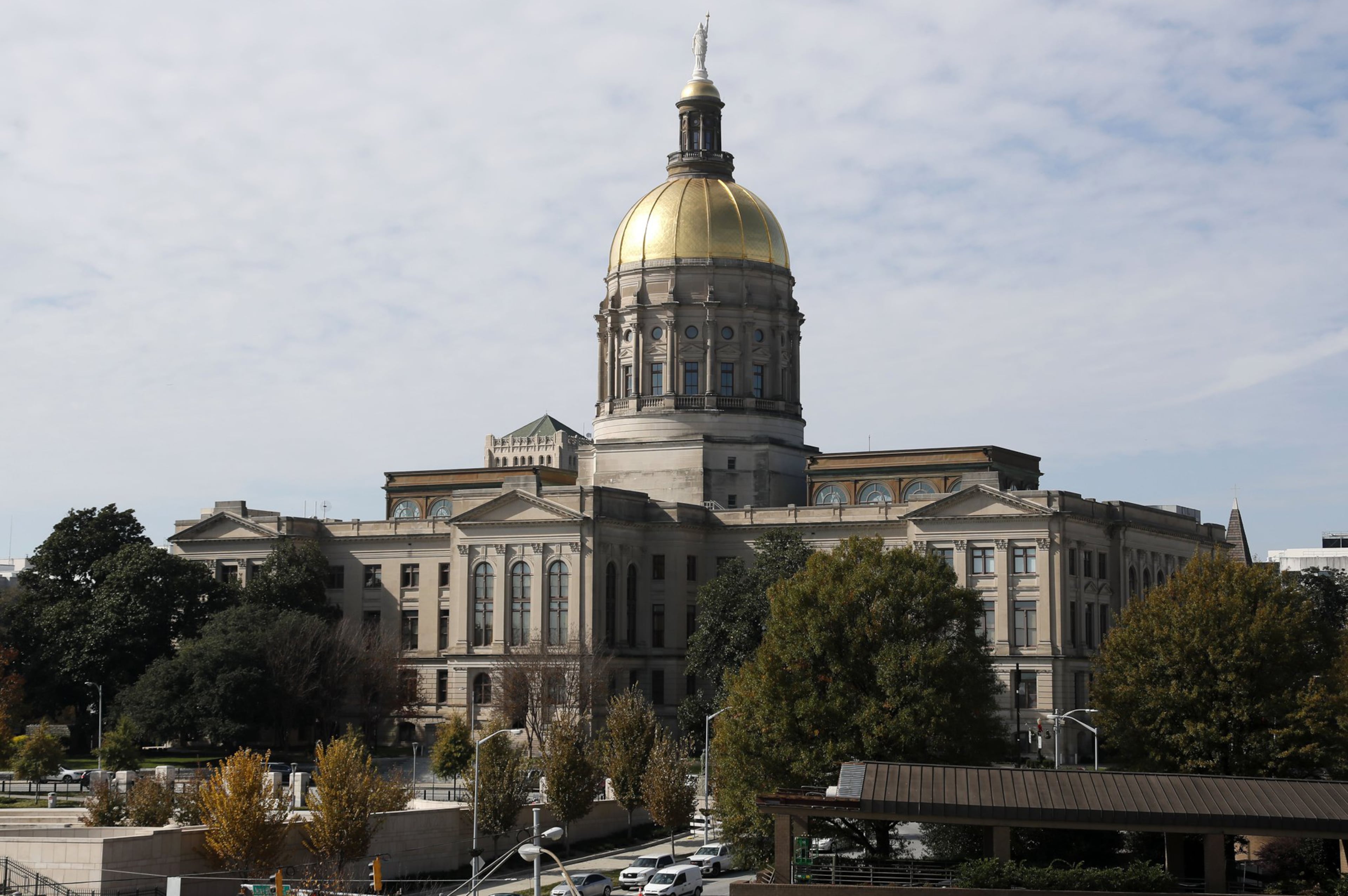Feds cancel citizenship ceremony planned for Georgia’s Capitol

The federal government has canceled a citizenship ceremony for former refugees that was scheduled for Tuesday in the state Capitol as part of the fourth annual “New Americans Celebration,” adding it will be reviewing other naturalization events nationwide as part of a newly updated policy.
In canceling Atlanta’s ceremony, U.S. Citizenship and Immigration Services cited rules barring it from using the facilities of groups that practice immigration law and are involved in political advocacy.
Tuesday's event was organized by the Coalition of Refugee Service Agencies, which includes organizations that resettle refugees in America, advocates for them and helps immigrants apply for citizenship. On Thursday, the coalition is scheduled to appear at the Capitol, where advocates will oppose Senate Bill 452, a measure backed by Lt. Gov. Casey Cagle that would require state judges and local sheriff's deputies to help with federal immigration enforcement.
RELATED: Georgia gubernatorial hopefuls put a bull’s-eye on illegal immigration
USCIS’ move follows its decision last month to remove from its mission statement a phrase describing the agency as securing “America’s promise as a nation of immigrants,” a decision that has sparked widespread criticism from immigrant rights advocates. The Trump administration, meanwhile, is sharply limiting refugee resettlements and seeking to dramatically cut legal immigration to the United States.
On Monday, USCIS issued a prepared statement about canceling the Atlanta ceremony, saying it is complying with “a longstanding practice of ensuring that venues and organizations do not detract from the significance of the ceremony.”
“The changes were made to provide specific guidance to all offices, and to ensure that the naturalization ceremony is the principal purpose of an event, and not ancillary to another program,” the agency said. “A new date and location will be announced for those ready to take their Oath of Allegiance to become U.S. citizens.”
Tuesday’s Atlanta ceremony, its organizers said, was aimed at showing support for refugees and immigrants in Georgia while state lawmakers are in session. Derreck Kayongo, the CEO of Atlanta’s Center for Civil and Human Rights, was scheduled to deliver the keynote address at the ceremony, which has been held in the state Capitol each of the past three years.
J.D. McCrary, the executive director of the International Rescue Committee in Atlanta, which helps resettle refugees in Georgia, questioned the timing of the government’s decision.
“One of our greatest honors as Americans is to welcome others into the privilege and responsibility of being a U.S. citizen,” he said. “To now remove the accolades of a public ceremony, right on the heels of USCIS’ removal of ‘nation of immigrants’ from its mission statement, further drives concerns that the agency, which should be the greatest champion of immigrants, is abdicating its role.”
Jan Ting, who served as an assistant commissioner with the former U.S. Immigration and Naturalization Service, said USCIS’ policy makes sense, adding the agency needs to be careful in its relationships with refugee and immigrant aid groups that come before it.
“It should be completely transparent and there shouldn’t be a lot of personal interactions outside of the basic structure of the business relationship,” said Ting, a professor of immigration law at Temple University and a board member with the Center for Immigration Studies, which advocates for admitting fewer immigrants. “Maybe it is a good business practice to draw those lines a little more clearly.”
Emily Laney, the coalition’s chairwoman, said while her organization was saddened by the government’s decision, “we respect our friends and partners at USCIS who we know did not make this decision lightly.”
“We at the CRSA have, in the past,” she said, “worked to host up to three special naturalization ceremonies per year with USCIS, and hope to continue to bring these moving, meaningful ceremonies to the community as USCIS sees appropriate.”
Never miss a minute of what's happening in Georgia Politics. Subscribe to PoliticallyGeorgia.com.



